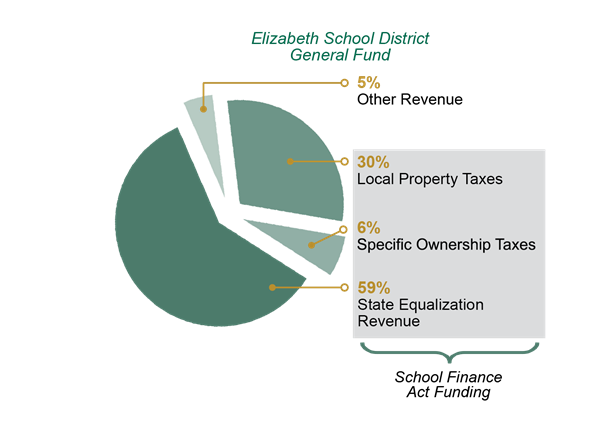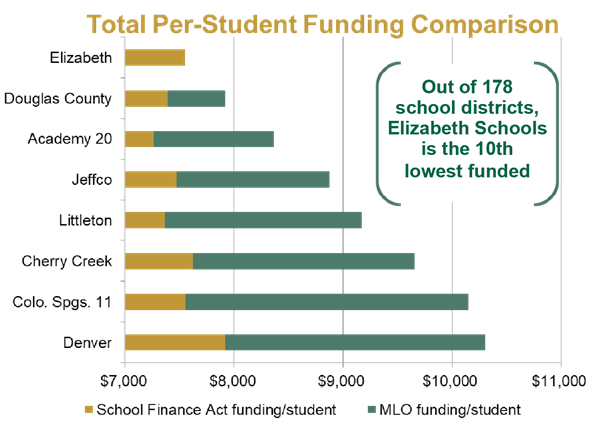Mill Levy Override 2018
Page Navigation
School District Funding 101
-
How Elizabeth School District receives money

In 1994, the School Finance Act was passed. The act includes a formula for how state and local tax revenue is combined to distribute equitably across the state. The formula sets a statewide base per-pupil funding amount and then adds funds based on factors that affect individual school district's costs, such as district size, cost-of-living, number of at-risk students, etc.
Funding for each district first comes from each district’s local funds - local property taxes and specific ownership taxes (vehicle registration fees). State revenue fills in where local funds fall short of the fixed amount set by the state for each district.
State revenue was only intended to fill in when local funds are insufficient. In the 1980s, state revenue made up one-third of the funds Elizabeth School District received. Currently, it is close to two-thirds. At this ratio, when the state cuts funding or doesn’t increase funding there is a significant impact on school funding.
Locally approved bonds & overrides
Colorado allows school districts to ask voters to approve additional funding through bond and mill levy override tax measures.
Overrides are additions to the general fund and used for operating expenses such as salaries and benefits, instructional programs and classroom technology.
Bonds can only be used for capital expenditures, including major repairs, renovations, additions to schools and new schools. Bonds are not included in the district general fund and cannot be used for operating costs such as salaries and benefits.

Bond = Buildings
Override = OperationsElizabeth Schools has one bond that was used to build Elizabeth High School. The bond is set to expire in 2019. The district does not have a mill levy override.
How Elizabeth Schools compares
Most school districts in Colorado have mill levy overrides to support their operational expenses.
Over the past several years, voters have approved mill levy overrides for Cherry Creek, Denver, Littleton, Boulder Valley, Colorado Springs 11, Academy 20, Falcon 49, and many other school districts. This has led to significant funding inequities between districts and large differences in opportunities for students.


